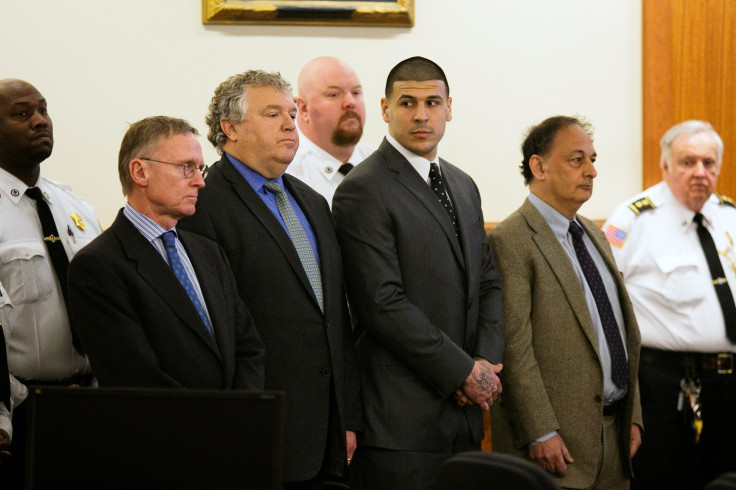Patriots Owner Robert Kraft's Testimony Key In Aaron Hernandez Guilty Veridct
Jurors claim Kraft's testimony helped jurors suspect Hernandez in killing of Odin Llyod.

New England Patriots owner Robert Kraft’s testimony played a key role in the conviction of former NFL player Aaron Hernandez jurors told the press, including ESPN Thursday. The former Patriots tight end was convicted on first degree murder charges Wednesday by a jury for the killing of semi professional football player Odin Llyod.
Hernandez allegedly, with two of his friends picked up Llyod and drove to an industrial park a mile away from his home and killed him. The two other guys were identified as Carlos Ortiz and Earnest Wallace. The murder occurred on June 17, 2013, with police searching Hernandez’s home for evidence the next day after it emerged that he had hired cleaners for his house the same day Odin was found murdered, and had also intentionally destroyed his home security system.
Kraft reportedly talked to Hernandez on June 19th as the player worked out in the Patriots training facility. Hernandez denied being involved in the murder and told Kraft he hoped the time of the murder would be made public as he was at a club at the time of the incident.
That statement reportedly made the jurors suspect Hernandez’s innocence. "To this day, we just went through a three-month trial, this is now a year and a half or two years later, and we still don't know the exact time of Odin's murder, specifically. So I don't know how Aaron would have had that information two years ago. Even today, after medical examiners' review, we still don't have that information," claimed one juror.
Hernandez was found guilty of first degree murder, and also five firearms related charges. He was sentenced to life in prison without parole. He didn’t face the death penalty as Massachusetts had abolished death penalties back in 1984. The Patriots cut him from the team within 90 minutes of him being arrested.
Email karthik17g.b@gmail.com to contact author of this article.






